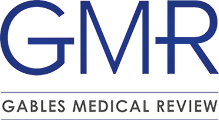
The Most Common Reasons for Denied Medical Claims (And How to Prevent Them)
Dealing with denied medical claims can be frustrating, time-consuming, and costly for both healthcare providers and patients. Errors in medical billing, incorrect documentation, and insurance claim mistakes often lead to unnecessary denials, delaying reimbursements and adding to administrative burdens. At Gables Medical Review, we specialize in identifying and preventing these issues to help streamline claims processing and maximize reimbursements. Understanding why claims get denied and taking proactive measures can significantly reduce claim denials and improve overall efficiency.
Understanding Denied Medical Claims
Insurance companies deny claims for various reasons, ranging from minor administrative errors to more complex disputes over coverage and medical necessity. Addressing these issues requires precision in medical billing and proper documentation to ensure compliance with insurance policies. Below, we explore the most common causes of claim denials and how to prevent them.
1. Medical Billing Errors
One of the primary reasons for denied medical claims is medical billing errors. These errors can include incorrect coding, missing information, or even simple typographical mistakes. Such errors can lead to significant delays in payment or outright denials.
- Incorrect Coding: Medical procedures and services are assigned specific codes. Errors in these codes can result in claim denials. Ensuring that the correct codes are used is vital.
- Missing Information: Claims must include complete and accurate information. Missing patient details, dates of service, or provider information can lead to denials.
- Typographical Errors: Simple mistakes, such as misspelled names or incorrect identification numbers, can cause claims to be rejected.
2. Insurance Claim Mistakes
Many insurance claim mistakes occur due to misunderstandings of policy coverage, missed deadlines, or failure to meet insurance company requirements.
- Policy Coverage Issues: Claims may be denied if the service is not covered under the patient’s insurance policy. It’s essential to verify coverage before providing any services.
- Pre-Authorization Requirements: Some procedures require pre-authorization from the insurance company. Failing to obtain this authorization can lead to denials.
- Timely Filing: Submitting a claim after the insurance company’s deadline can result in denial. Always adhere to filing deadlines.
3. Documentation Errors
Proper documentation is crucial in the healthcare industry. Inadequate or incorrect documentation can lead to denied medical claims. Ensuring that all records are complete and accurate is essential for successful claims processing.
- Incomplete Medical Records: Incomplete or missing medical records can result in denials. It’s important to maintain comprehensive records for all procedures and services.
- Inconsistent Documentation: Inconsistencies between the claim and the medical records can raise red flags for insurance companies, leading to denials.
- Insufficient Evidence of Medical Necessity: Insurance companies require evidence that a procedure is medically necessary. Failing to provide this documentation can result in denial.
Preventing Claim Denials
While denied medical claims can be challenging, there are several strategies that healthcare providers can implement to reduce the risk of denials. By focusing on accuracy, compliance, and proactive measures, you can significantly improve your claims acceptance rate.
1. Invest in Training and Education
Proper training for staff involved in the billing process is crucial. By educating your team on the importance of accurate coding, documentation, and adherence to insurance requirements, you can minimize errors that lead to denials.
- Regular Training Sessions: Schedule regular training sessions to keep staff updated on the latest coding practices and insurance requirements.
- Certification Programs: Encourage staff to pursue certification programs in medical billing and coding to enhance their skills and knowledge.
2. Utilize Technology and Software
Leveraging technology can streamline the billing process and reduce the likelihood of errors. Many software solutions are available to assist with coding, documentation, and claims submission.
- Electronic Health Records (EHR): Implementing EHR systems can improve documentation accuracy and ensure that all necessary information is included in the claim.
- Billing Software: Utilize billing software that includes built-in checks for coding accuracy and compliance with insurance requirements.
3. Conduct Regular Audits and Reviews
Regular audits and reviews of your billing processes can help identify potential issues before they result in denied claims. This proactive approach allows you to address problems and implement corrective measures promptly.
- Internal Audits: Conduct internal audits to assess the accuracy and efficiency of your billing processes.
- External Reviews: Consider partnering with a professional review service like Gables Medical Review to conduct external reviews. Their expertise can identify areas for improvement and provide valuable insights.
The Role of Professional Review Services
At Gables Medical Review, we help healthcare providers navigate the complexities of medical billing errors and claim denial prevention by offering expert reviews that optimize claim accuracy and compliance.
1. Expert Analysis
Our team of experts evaluates your billing processes, identifying common errors and areas for improvement. This analysis ensures that your claims are accurate and compliant with insurance requirements.
2. Customized Solutions
We provide tailored solutions to address your unique challenges, helping you implement best practices and prevent future claim denials.
3. Ongoing Support
Our commitment to your success doesn’t end with a single review. We offer ongoing support and guidance to help you maintain efficient and effective billing processes.
Preventing denied medical claims requires attention to detail, compliance with insurance policies, and a commitment to accuracy in medical billing and documentation. By addressing insurance claim mistakes and implementing proactive strategies, healthcare providers can minimize financial losses and improve overall operational efficiency.
At Gables Medical Review, we specialize in claim denial prevention, helping providers navigate the complexities of insurance claims with expert analysis and professional review services. Don’t let claim denials impact your practice—contact Gables Medical Review to learn how we can help you optimize your billing process and secure the payments you deserve.

